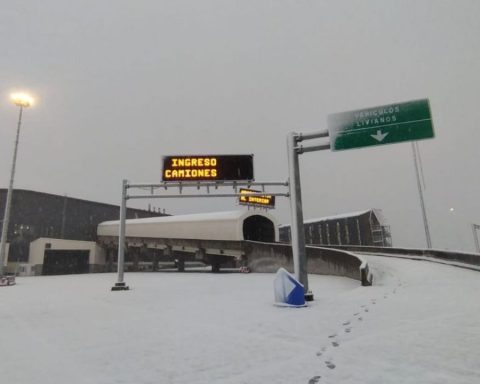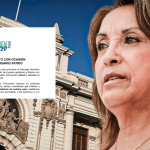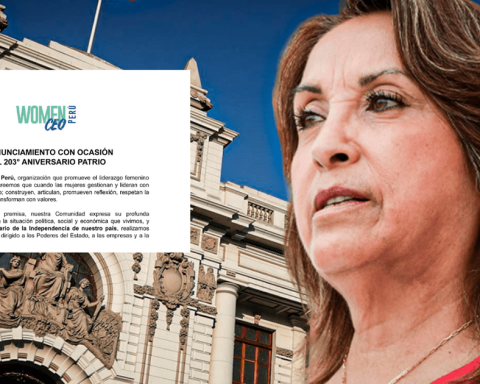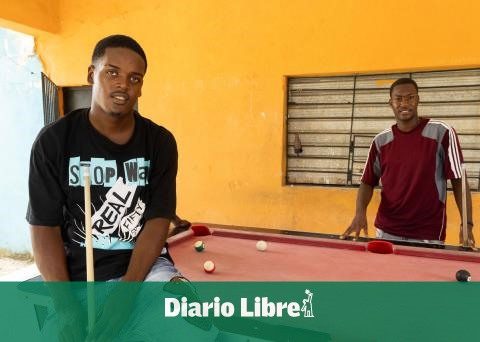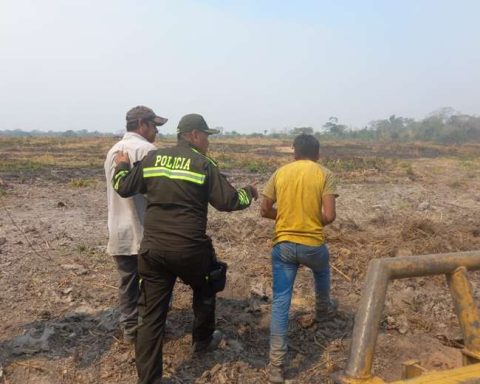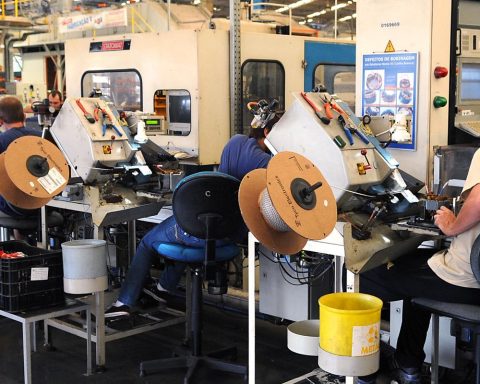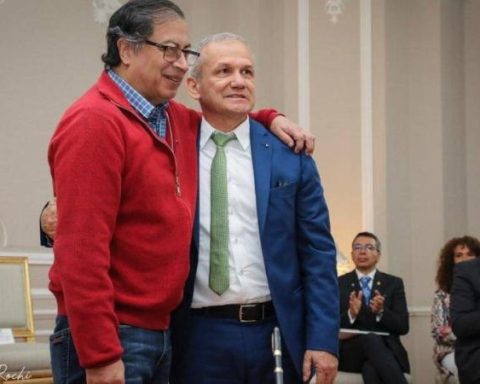In its quest to achieve transversal agreements that enable it to advance in the legitimization of its program, the Government of President Gabriel Boric has had to open bridges towards sectors of the former Concertación that do not make up any of the official coalitions. An opening that has the Christian Democracy (DC) giving clear signs of its willingness to collaborate in the future with the Executive, clear signs of interest that are welcomed by some and resisted by others.
One of these warning voices about the risks of building bridges with the former Concertación comes from the mayor of Valparaíso and former Social Convergence militant, Jorge Sharp, who – in an interview with The Mercury- He pointed out that he considers it a mistake to expand his political and social base towards those sectors, “because it means governing with people who for 30 years had their opportunity to govern.” The community chief says he does not agree with this bet, since he considers that the actors who believe in the change agenda, which – in his opinion – the country requires, are not found in the leadership of the former Coalition.
A criticism that raises questions about what will be the strategy of a government that, not having a parliamentary majority, is obliged to negotiate with political sectors that do not make up any of its coalitions (I approve of Dignity and Democratic Socialism), opening doors for new actors have an unusual leading role. In addition to the Socialist Party (PS) and the Party for Democracy (PPD), which are beginning to gain notoriety within La Moneda, the first signs are beginning to emerge from a conglomerate that, until now, had remained on the sidelines, but that has been available to respond to a possible call from the Executive.
It is the Christian Democracy (DC), a group from which they say they have all the willingness to collaborate and give the first glimpses of what the eventual elements of negotiation would be. This is confirmed by its helmsman, the mayor of La Granja, Felipe Delpin, who maintains that “if President Boric believes that at some point, beyond the votes of our parliamentarians, he needs the contribution of our technicians and professionals, in order to have a Successful government and better management, he will have to make the decision. Until now, we have not requested anything, to give peace of mind to all the sectors that have been concerned about a possible incorporation of the DC into the Government. We have not requested absolutely nothing and we are not going to do it either. If there is an initiative, it will have to come from the government and, if so, we will make the decisions in the corresponding bodies within our party.”
Another figure close to the former Concertación, who is no longer a member of the Falange but who currently identifies with the group “Yellows for Chile”, Mariana Aylwin, used her Twitter account to defend President Boric after the blunders she received for part of a sector of the public in the official act of last Saturday, May 21 in Valparaíso. The former Minister of Education described the event as “a shame”, adding that “consistency manages to prevail if one is firm in convictions and respectful of republican forms. Hold on, President”, closed Aylwin. Regarding this defense and a possible rapprochement between the current Executive and the party she resigned from in 2018, she pointed out that “I am so far from the DC that I do not have much to contribute. In any government, the DC can be a factor of influence if it does not give up its identity. Because, to be just another party, just like the others, it doesn’t matter if it’s there or not”.
As for the criticisms that arise on the left about a possible entry of the Christian Democracy into the Government, and whether or not it would be a betrayal of the transforming principles that supported the arrival of the President to La Moneda, the helmsman of the Communist Party (PC) and one of the most experienced voices within Approve Dignidad, Guillermo Teillier, ruled out that expanding to the former Concertación means betraying the spirit of his administration. “When we are talking about a program, if someone wants to collaborate with that program, I do not see that it is treason with anything, nor that those of us who accept that collaboration are traitors. The important thing is to keep the government program to the letter. And I believe that if the DC is willing to collaborate with that, the doors are open and they are not closed in any way”, Teillier sentenced.
Internal differences about a possible rapprochement
Regarding the possibility of formally joining the current Government, DC parliamentarians expressed their dissatisfaction with this option, assuring that they should collaborate in giving the country governability without the need to enter the Executive. In this regard, the deputy for district 8 (Metropolitan Region), Alberto Undurraga, pointed out that what they seek is to continue being “collaborators with autonomy.” In this sense, the parliamentarian added that “we are not in the Government nor do we want to be. Citizens put us in a different role and from there we want to collaborate.”
The one who went further was the senator for the Coquimbo Region, Matías Walker, who maintained that “we have to have dignity. We lost the presidential election, this is not our government, much less our coalition; we do not share the refoundational spirit that has I approve Dignity, therefore, we could hardly share a government coalition with them.What we can do is collaborate on all those projects that are beneficial to the citizenry, as we demonstrated, for example, with the approval and improvement of the project to increase of the minimum wage.”
A transformative or refoundational logic that could be the stumbling block for a possible rapprochement of the DC with a government that seeks to broaden its support base, but that requires that said support base be consistent with its program, since from within the Moneda assure that it is not just about adding votes in Parliament, while pointing out that those sectors that are willing to join must do so from that predicament, linked to a conviction regarding “profound changes in the country.”
Someone who directly challenged the historic party of former President Patricio Aylwin was the helmsman of Acción Humanista and deputy for the 11th district (Metropolitan Region), Tomás Hirsch, who stated that “if the DC wants to move from its initial position of being opposition, to then be a ‘constructive’ opposition, to later not be an opposition but not be part of the Government either, and if today they want to contribute to the program, that seems fine to me, although it did not seem very aesthetic to me that their approach was in the sense of if the Government summons them to a position, they would be available. It seems to me that I wish they were not so obvious in stating that what they are looking for are government positions, “he said.
Finally, the president of the Liberal Party and deputy for district 1 (Arica and Parinacota Region), Vlado Mirosevic, said that adding new actors does not necessarily imply betraying the spirit of the Government, as long as the reform agenda remains clear. . In this sense, he was open to a broad dialogue with the aim that these reforms have a political basis in Congress, since, on the contrary, he believes that an alternative path is emerging, which is a sectarian one that will lead to all major reforms are rejected in Congress, where they do not have the necessary majority.






